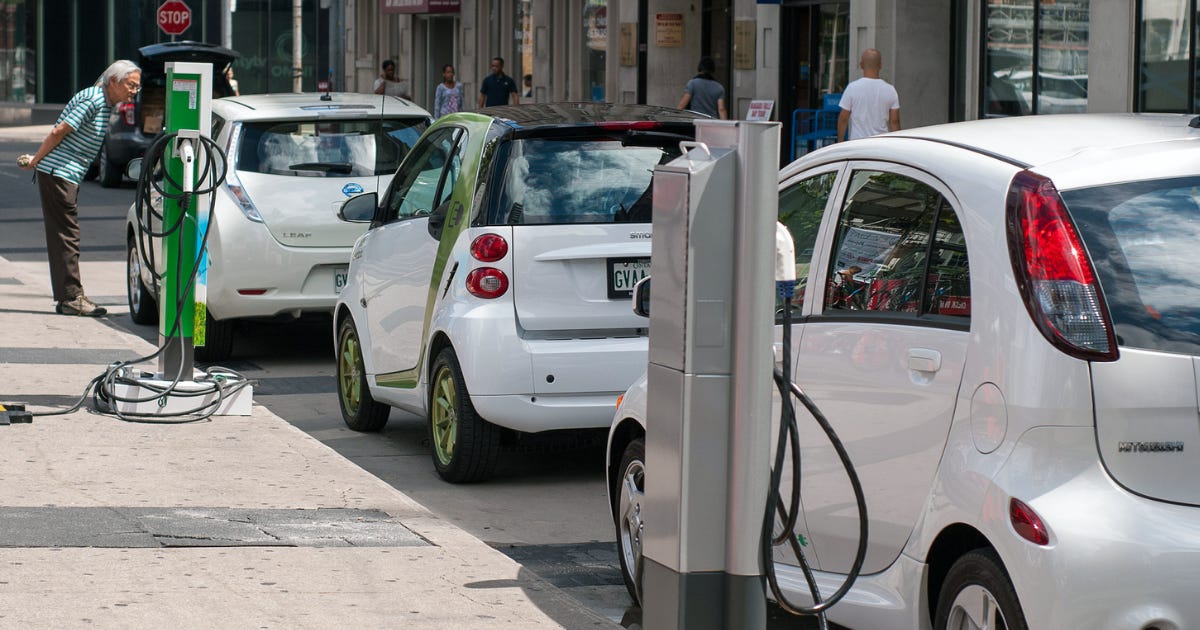$7 billion Northvolt EV battery plant project ends in failure
An electric vehicle battery project that cost taxpayers more than $7 billion is coming to an end, following a wave of EV companies suffering major losses as consumers revert to gas-powered automotives
An electric vehicle battery project that cost taxpayers more than $7 billion is coming to an end, following a wave of EV companies suffering major losses as consumers revert to gas-powered automotives.
The Quebec government announced it would cease funding the Northvolt EV battery plant after committing $2.9 billion to the project, with Ottawa putting up an additional $4.4 billion.
“Since the company did not present a satisfactory plan with respect to Quebec’s interests, we are asserting our rights to recover the maximum amount of our investment,” Economy Minister Christine Fréchette said in a statement on Tuesday.
“This adventure has proven unsuccessful, and we are obviously disappointed.”
The Quebec government is hoping to recoup as much as possible from the failed venture, but said it's prepared to cut its losses.
The Northvolt project was initially announced in September 2023, with then-prime minister Justin Trudeau, who called it a “historic and transformative” announcement.
Swedish battery developer and manufacturer Northvolt AB filed for bankruptcy in March, despite being given $2.7 billion in taxpayer subsidies, raising serious doubts at the time about whether its planned Quebec factory would ever come to fruition.
“Following an exhaustive effort to explore all available means to secure a viable financial and operational future for the company, the Board of Directors of Northvolt AB today announced that it has filed for bankruptcy in Sweden,” wrote the company in March.
Fréchette noted that Northvolt’s failure does not mean Quebec’s interest in investing in the battery industry has begun to wane.
“On the contrary, our sector is very much alive with several companies active in this ecosystem,” she said. “We remain convinced that it has a bright future.”
However, the project’s immense cost in government subsidies caught the attention of the Canadian Taxpayers Federation, which called on the Carney government to cease its corporate welfare to EV companies.
“The federal government should follow Quebec’s lead and pull the plug on this risky corporate welfare,” said CTF federal director Franco Terrazzano in a statement on Wednesday. “The Carney government can save taxpayers billions if it stops the flow of cash to multinational corporations now.”
According to the Parliamentary Budget Officer, the federal government has left taxpayers with a $31.4 billion bill in overall subsidies for battery factories and the electric vehicle supply chain.
Meanwhile, provincial governments have given EV companies an additional $21.1 billion in taxpayer subsidies.
“The government is broke and it should not give taxpayers’ money to corporations,” Terrazzano said. “The government should be growing the economy by cutting taxes and red tape, not by making risky bets with taxpayers’ money.”





Really, and nobody saw that coming? Is this the same group who want to decide which projects are in the national interest? God help us.
As long as liberals are in charge, our tax dollars will continue to be wasted on their green ideology until there’s nothing left & we will be the ones left holding the bag, the empty bag. We all will suffer as a result of their incompetence.